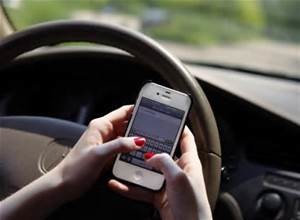Florida Law on Texting and Driving
 What does Florida law say about Texting and Driving?
What does Florida law say about Texting and Driving?
In October 2013, Florida enacted a ban on texting while driving. Florida Statute 316.305 makes it unlawful for a person to operate a motor vehicle while manually typing into a wireless communications device or while sending or reading data in such a device. This applies to such communications as texting, emailing and instant messaging. The law imposes no limitation on talking on your cell phone.
The penalty for texting while driving is a simple civil infraction similar to a seat belt violation.
How is it Enforced?
The law against texting while driving is known as a secondary offense. This means even if an officer sees you texting, you can’t be stopped unless you’re also committing another violation like speeding or running a stop light. Florida is one of only five states in which texting while driving is not a primary offense.
Is it Enough?
Because it is a secondary and not a primary offense, it makes it difficult for law enforcement to pull over someone for texting. Remember they can’t pull you over and give you a ticket for texting unless they also see you committing an additional infraction.
Across Central Florida, fewer than 400 texting tickets have been issued since the inception of the law.
The lack of tickets is not indicative of how prevalent and dangerous texting while driving is in Florida. If you are going 55 mph and look down at a text for just five seconds, you’ve traveled the length of a football field. This seems to be the same as driving blind for 5 seconds. You are six times more likely to cause an accident texting while driving than driving while intoxicated, and nationwide we see 330,000 injuries per year attributed to drivers who are distracted from texting.
